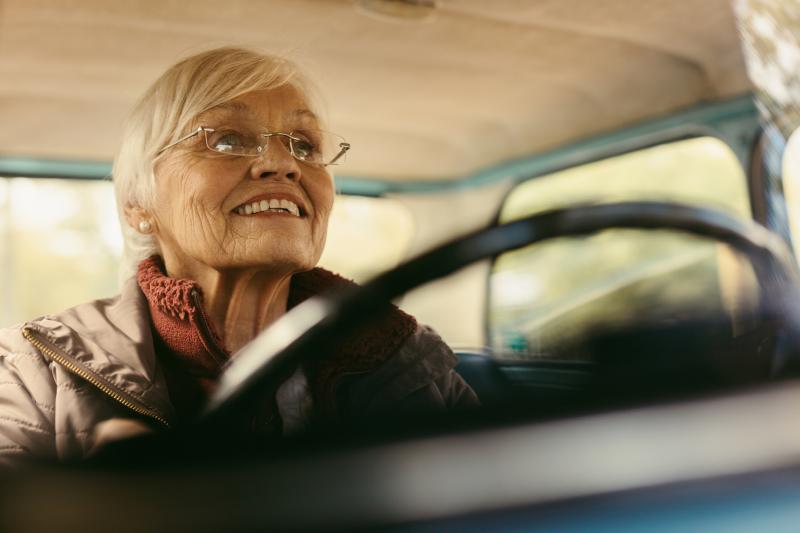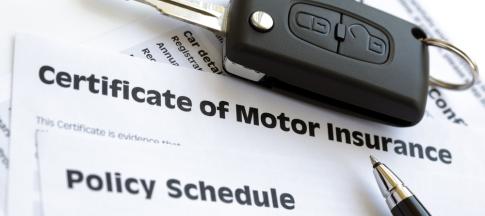Why does car insurance for over 50s tend to be cheaper than it is for other age groups? Find out here as we explore this topic in more detail

Age is just a number, but it's one of the many factors insurers take into account when calculating insurance prices.
But car insurance for over 50s is usually cheaper than it is for younger age groups because older drivers tend to make fewer claims than younger drivers.
In fact, our LittleBox study of the best and worst drivers in the UK found that drivers aged 56-60, and those who were retired, scored highest, with far more experience than younger drivers.
Older motorists have the advantage of not being tied to a routine which may involve driving young children every day to school or activities, and as a result they may drive less and may not need as large a vehicle.
With a smaller car, older drivers can benefit from being in a lower insurance group, but experience and a few years’ No Claims Bonus will be what really helps.
Why is car insurance cheaper if you’re over 50?
Many factors have an impact on an insurance quote, and here are just a few that can make car insurance for over 50s cheaper than it is for other drivers:
- Experience
- Lifestyle
- Type of car
- No Claims Bonus
Experience drives down car insurance for over 50s
Having been on the road for longer, over 50s may be wiser, more careful and more prepared on the road. Confidence plays a big part in overcoming driving challenges such as heavy rainfall, slow-moving motorway traffic and sharp country road bends.
With years of experience, drivers aged over 50 are often more assured behind the wheel, and less prone to making impulsive moves or hesitating when those moments come.
Over 50s car insurance may be cheaper due to lifestyle factors
The less time a driver spends on the road, the lower their insurance premium is.
Driving may not be an everyday task for some motorists over 50 – if they’re retired or work part-time, or if any children have flown the nest and do not require chauffeuring as much as they did during their school-age years, older drivers may not need to drive every day.
Small cars reduce over 50s car insurance costs
The cheapest cars to insure are usually relatively inexpensive models with smaller engines and low-priced parts.
Similarly, higher-performance cars with bigger engines carry bigger insurance premiums – because they are more likely to be stolen or involved in accidents.
Many motorists over 50 may choose to buy smaller cars for financial and practical reasons, and so benefit from the reduced premium costs of a small vehicle in a low insurance group.
No Claims Bonus and car insurance for over 50s
A No Claims Bonus can make a massive difference to the price of over 50s car insurance. Experienced drivers are more likely to have been claim-free for several years, and can benefit from a substantial discount that will bring down premiums.
Of course, there are plenty of reasons why car insurance for over 50s would not be cheaper than it is for younger drivers. If drivers live in a high-crime area with a greater risk of accidents, or drive a more expensive or powerful car, premiums tend to rise. Claims and penalty points will hike up insurance costs even further.
But generally people aged over 50 tend to pay less than other drivers for their insurance.
Advice for older drivers
It’s important to be aware of any issues that could impact our driving ability as we mature, particularly when it comes to our health.
By 2035, 21 million motorists will be considered ‘older drivers’ – so it’s a good idea to bear these points in mind:
- There’s no safe or unsafe age to drive but it’s important to stay in practice and to ensure you’re fit to drive
- Long journeys can be tiring, so make sure you’re up to it, whatever your age
- Drivers over 70 need to reapply for their licence every three years, to keep up to date with the rules of fast-paced and increasingly busy roads
- It’s a good idea to be very careful or avoid driving in challenging conditions, such as bad weather or on unlit roads at night
- A second opinion can help someone realise whether or not they’re fit to drive – make sure any passengers you have feel safe when they’re in your car and you’ll know you’re on the right track.
The DVLA and DVA (in Northern Ireland) decide whether someone is classed as medically unfit to drive – it’s important they’re aware if a driver has a condition or is undergoing treatment that might affect their safety as a driver. Drivers are responsible for making them aware of any condition or treatment that may affect their fitness to drive.
The benefits of being an experienced driver are obvious - lower insurance and fewer hours on the road to name just a couple – but it’s always important to feel comfortable on the road and keep safe while you’re driving.
